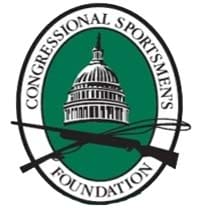Congressional Sportsmen’s Caucus Fights Proposed Ban of Lead Fishing Tackle

Washington, DC –-(Ammoland.com)- Seventy-eight members of the Congressional Sportsmen’s Caucus (CSC) signed a letter delivered last Thursday to Lisa Jackson, Administrator of the U.S. Environmental Protection Agency (EPA), urging the agency to dismiss the petition to ban the use of lead in fishing products.
The CSC members state in the letter, “There are 60 million recreational anglers in America that contribute $125 billion to our economy annually, and penalizing these men, women and children that are the best stewards of our environment, as well as the financial backbone to fish and wildlife conservation in our country, would be a terrible and unnecessary injustice.”
The CSC letter comes on the heels of a similar letter to Administrator Jackson requesting dismissal of the petition, sent on September 15, from the Congressional Sportsmen’s Foundation (CSF) and its partner members of the American Wildlife Conservation Partners (AWCP) and sportfishing communities. (See EPA Denies Petition Calling for Lead Ammunition Ban)
“This issue is about protecting America’s 60 million recreational anglers, and this attempt to ban lead based fishing tackle could potentially drive up cost and serve as a disincentive for Americans to fish,” said CSF President Jeff Crane.
The Association of Fish and Wildlife Agencies (AFWA), representing the 50 state fish and wildlife agencies, also sent a letter the EPA on September 2nd urging them to dismiss the petition.
State fish and wildlife agencies are authorized to manage most of a state’s fish and wildlife, and therefore, closely monitor and address any local concerns about lead based fishing tackle and any potential impacts on local species. A federal ban on lead fishing tackle is not only unnecessary, but intrudes upon these traditional state agencies jurisdiction.
No scientific basis has been established to warrant any such ban on traditional fishing equipment. A similar proposal to ban lead fishing tackle was dismissed by the EPA in the mid-1990s because there was insufficient data to support such a ban at that time.
